Communities for a Better Environment (CBE) is a grassroots environmental justice organization empowering low-income communities and communities of color in California. CBE organizes residents in heavily polluted neighborhoods to combat environmental racism and promote community-led solutions through organizing, legal/policy advocacy, and youth/adult leadership development.
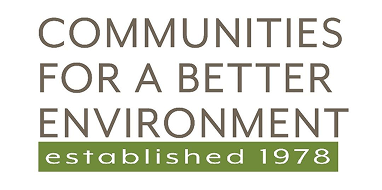
Statewide: East Oakland, Richmond, Wilmington (LA City), and Southeast Los Angeles
LA City: Wilmington, CA (90744)
LA County: in Southeast Los Angeles neighborhoods of Huntington Park, Walnut Park, Cudahy, Maywood, Vernon, South Gate, Florence-Firestone, Lynwood, Bell, and Bell Gardens
Wilmington is located in the southern tip of the City of Los Angeles, a majority working class, Latine community and home to many families and schools.
Unfortunately, it is also home to some of the highest concentrations of pollution sources in the state, as well as the third largest oil field in the country. In Wilmington, 1 in 3 households report cancer compared to 1 in 10 households reporting cancer across the US.
The Wilmington neighborhood has the highest concentration of refineries in California, which are increasingly refining “dirtier” Crude Oil. Using higher carbon, higher sulfur crude oil requires much more energy to process, increases hazardous sulfur pollutants present inside refineries, and drastically increases greenhouse gas emissions.
In addition to oil and gas operations, Wilmington is adjacent to the Ports of Los Angeles/Long Beach (the San Pedro Bay Port Complex), the largest and most polluting port complex in the entire country. About half of the country’s imports come through this complex.
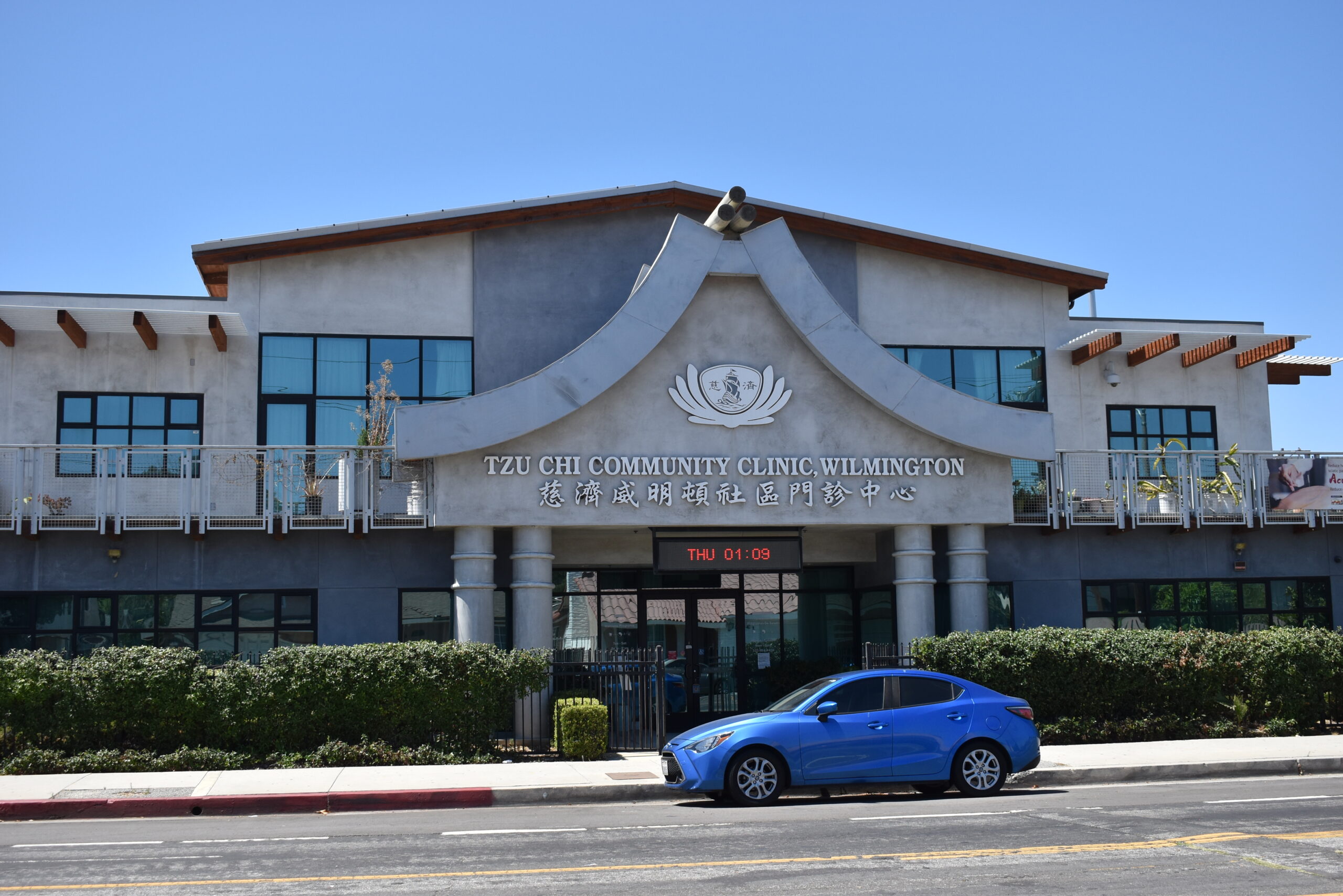
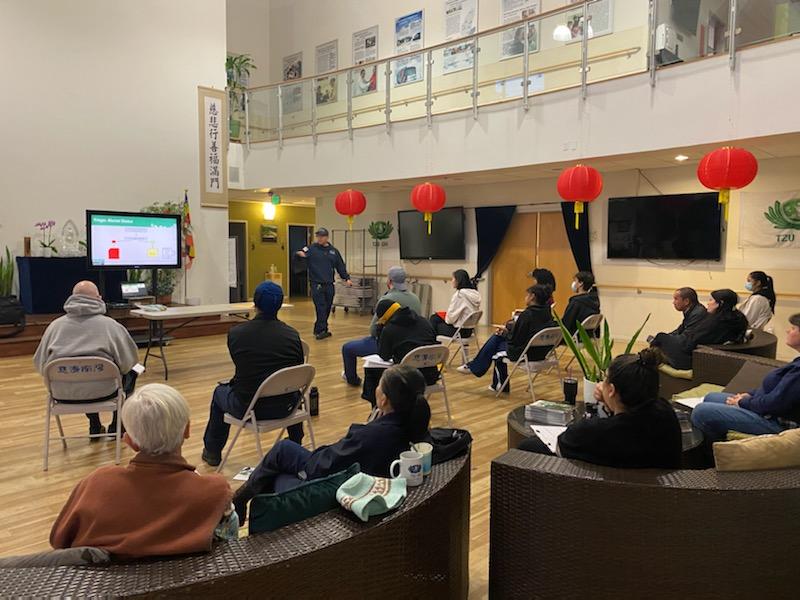
CBE’s Climate Adaptation and Resilience Enhancement (CARE) program demonstrates that resilience hubs are essential for delivering emergency support, mutual aid, and preparedness in vulnerable communities. These hubs strengthen local response networks while also advancing environmental justice and educating decision makers on resilience and mitigation needs.
CBE’s approach is community-led and action-focused, building local leadership through its “Resilience Squad” of youth and adult leaders. The squad received training and toolkits to support preparedness, mutual aid, and public outreach—distributed 185 resilience kits and gathered input to identify climate risks and hub locations. In total we collected approximately 150 surveys from in person outreach at critical public spaces and held texting banking sessions where we reached over 1,000 Wilmington residents.
A key partner is the resilient center, Tzu Chi Clinic, a Federally Qualified Health Center Look-Alike offering low costs services and classes such as monthly food distribution, health and resiliency workshops is critical for this location. The clinic also has access to an alternative solar and battery storage provided via Grid Alternatives.
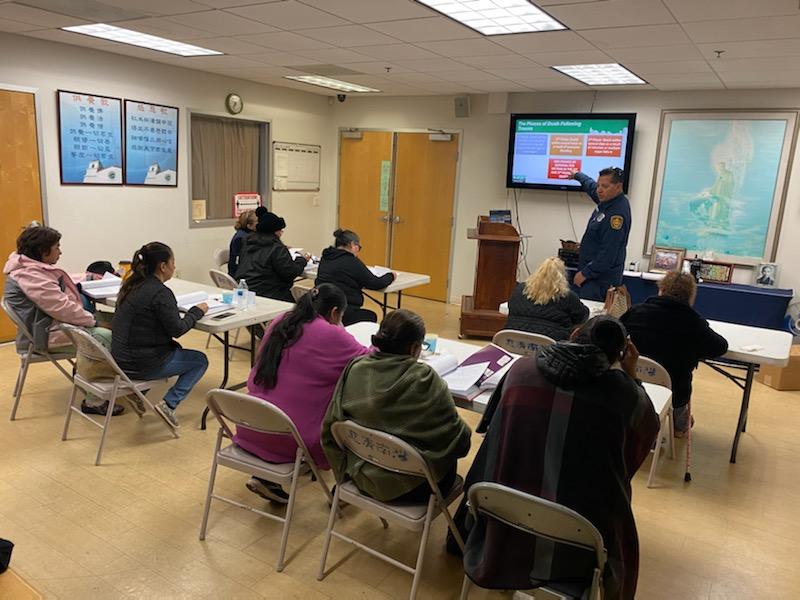
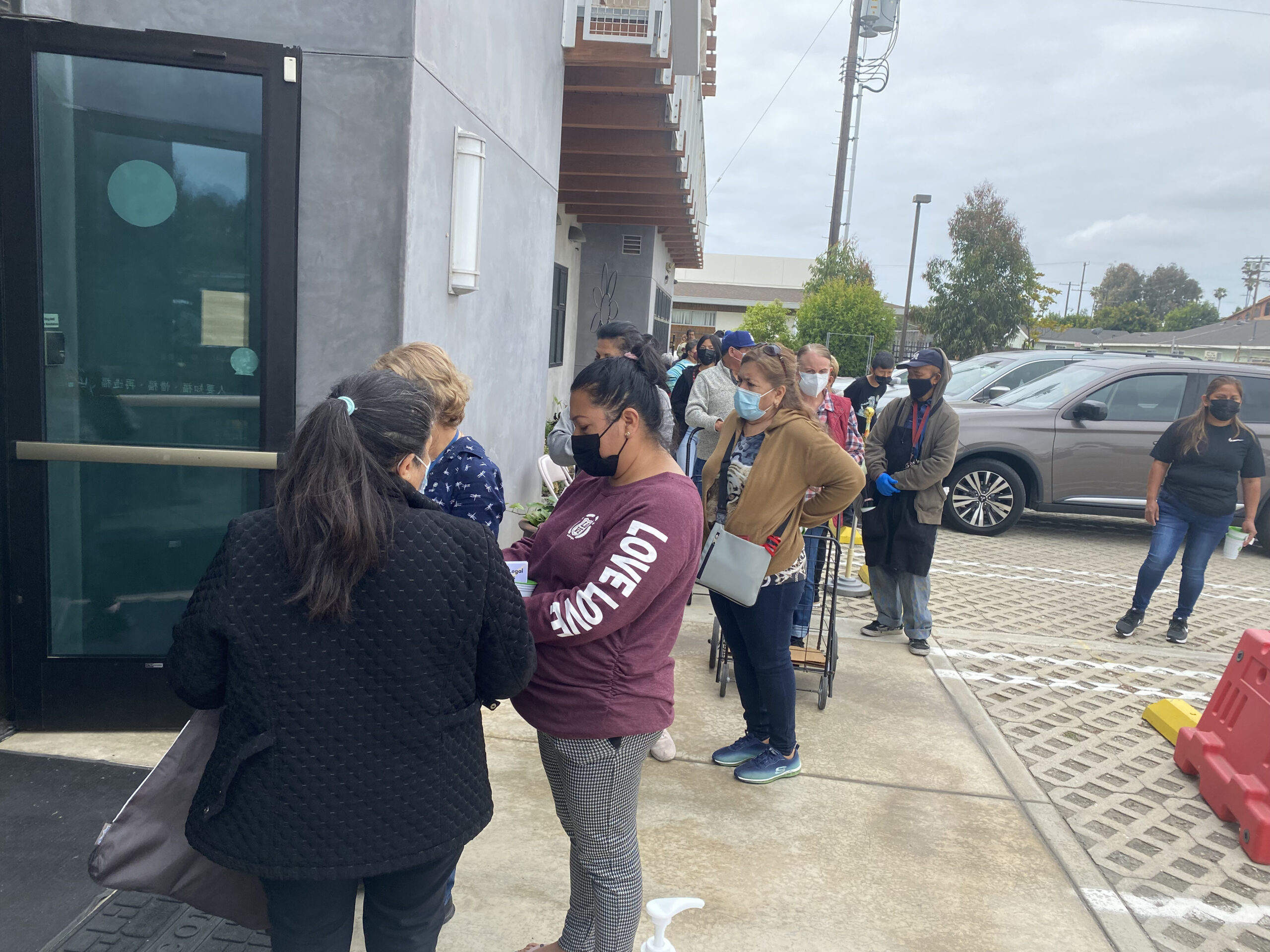
At a community event held by the Tzu Chi Clinic, we used the resilience hub survey (highlighting medical device needs, refrigeration, etc.) to determine the critical electric load, a function to ensure a battery is powering all essential appliances deemed necessary for the site to operate during an outage. With community feedback, we designated specific areas the battery will power including key lights, cell phone outlets, a refrigerator, and internet.
As a trusted site, Tzu Chi Clinic has well attended monthly food distributions, acupuncture services and other community wellness services. Prioritizing resilience, knowledge, safety and health, community members in Wilmington participate in events and workshops held at the site such as the Community Emergency Response Team (CERT) trainings. The CERT program equips community members with emergency preparedness skills to use during climate disasters in their neighborhoods. We look forward to working with the Tzu Chi Clinic staff to increase their capacity as a resilience hub and spread awareness to the community about the resources that the Clinic offers.
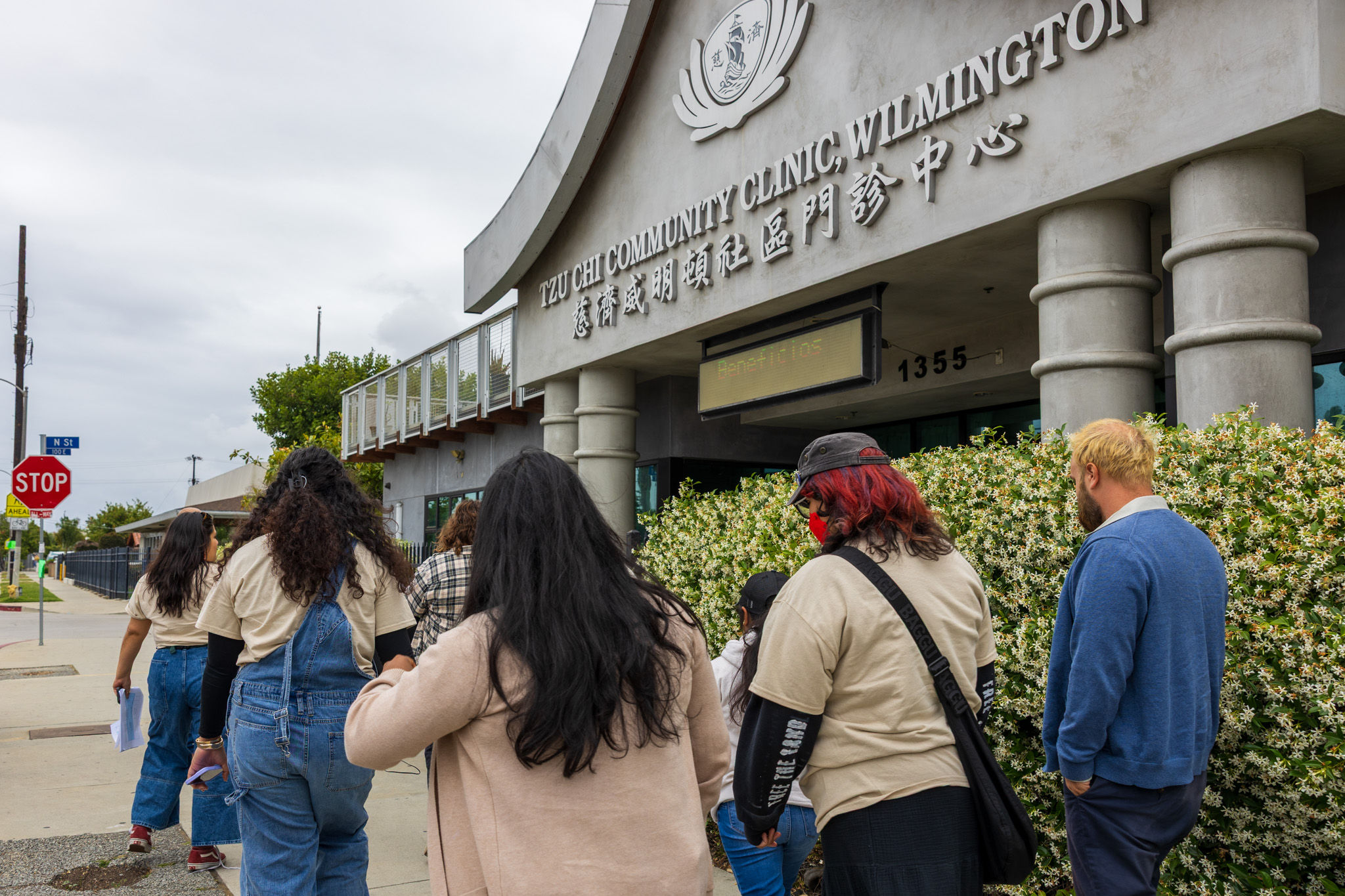
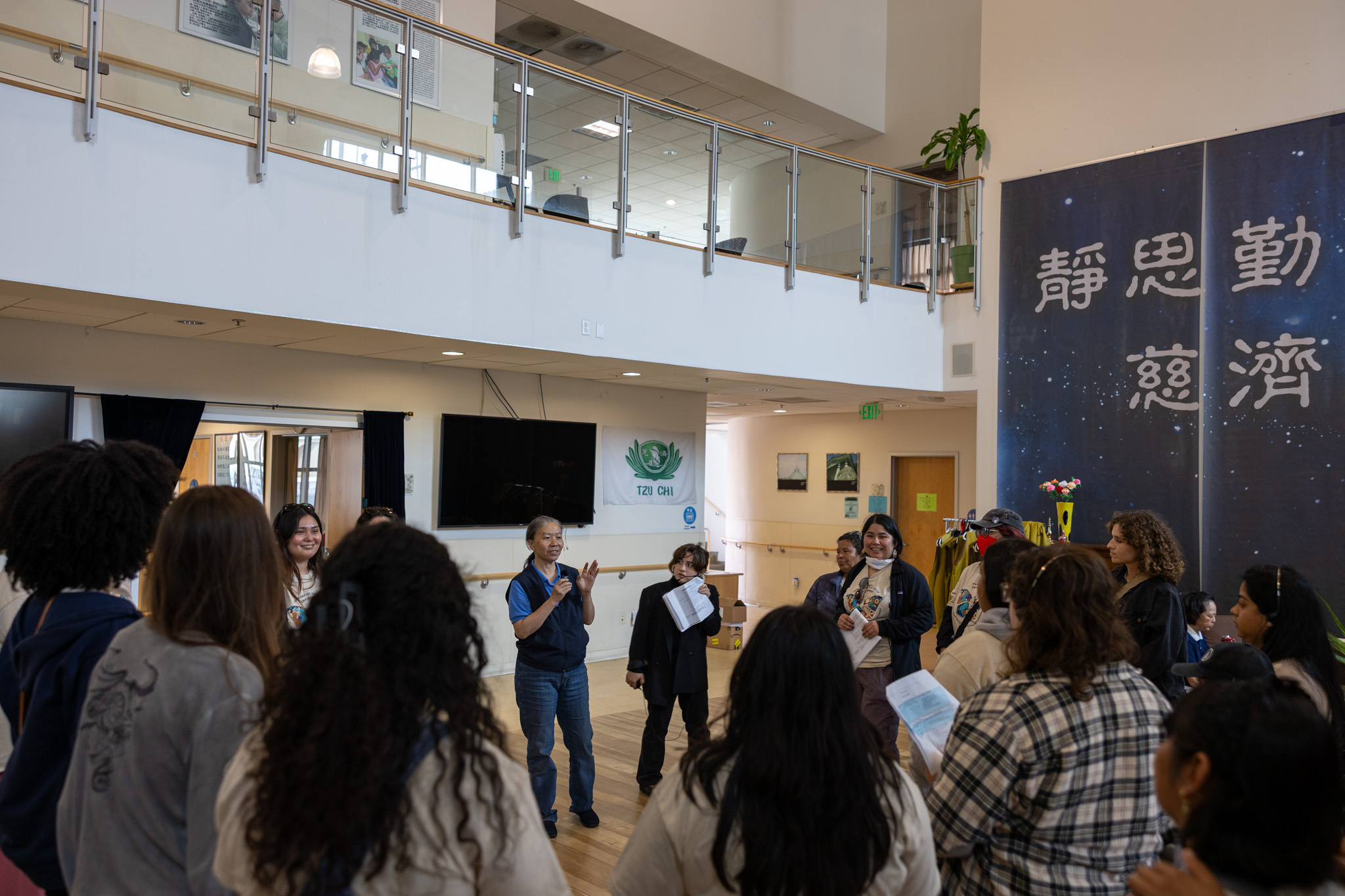
We are currently seeking funding to sustain ongoing community programming at the Tzu Chi clinic, including funding staff to adequately staff the site.